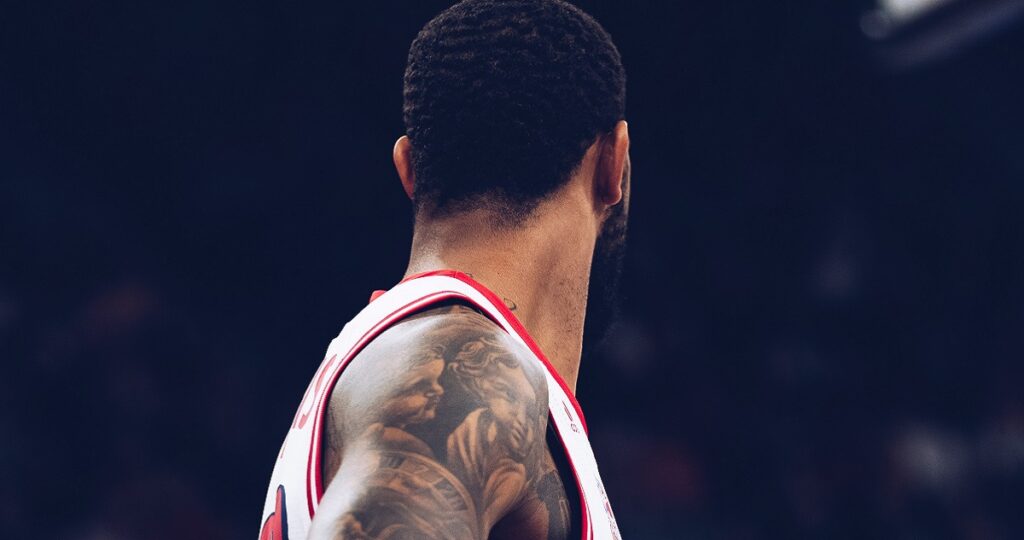Athletes That Have Become Trailblazers in the Cannabis Industry

How Black Athletes Are Fostering A New Era Of Cannabis Entrepreneurship – And Why It Matters
Though recreational cannabis is legal in a handful of states, there’s still a long way to go.
In the meantime, plenty of Black athletes are not only launching products but advocating for change and fighting against stigma.
For example, two NFL players – Calvin Johnson Jr. and Rob Sims – created a cannabis research company called Primitiv Group. The Michigan-based company has plans to work with Harvard University to research how cannabis affects brain trauma and recovery from concussions. Perhaps in the future, concussed footballers will be encouraged to treat their injuries with cannabis, rather than face consequences from the league.
NBA superstar Al Harrington, meanwhile, has a company called Viola, which produced goods in four states. More importantly, though, Viola focuses on increasing minority ownership and reinvesting in communities.
Plenty of other Black athletes have either started their own brand or joined one – Kevin Durant, Gabby Douglas, and Eugene Monroe, to name a few.
Why This Matters
The booming cannabis industry and its new generation of leaders is a reflection of the fact that the plant’s reputation has certainly come a long way over the last few decades.
In the 1970s, cannabis was more than taboo in the United States – it was completely vilified. President Richard Nixon had launched “the war on drugs” – an intense stretch of legislative and police efforts against drug use. It came just a decade after the counterculture movement of the 1960s, which helped popularize drug use in the U.S.
Nixon’s push against drug use was, if anything, relentless. “If we cannot destroy the drug menace in America, then it will surely in time destroy us,” Nixon once told Congress. “I am not prepared to accept this alternative.”
But, arguably, his approach did destroy America or at least leave a few cracks that are still evident today. Look no further than America’s prisons: one-fifth of incarcerated people in America – 456,000 people – are serving time for a drug charge. But their prison sentences must be keeping the country safe from drug-related harm, right? Wrong.
There has not been a significant link found between incarcerating individuals and substance misuse rates. In fact, the leading cause of death among recently-released prisons is drug overdose. Researchers believe the causes of lower crime rates in cities are 75 to 100 percent caused by factors other than incarceration.
Racism Is A Key Element In The Anti-Drug Boom Of The 1970s
The war on drugs came with a not-so-hidden agenda. One of Nixon’s top advisors, John Ehrlichman, spoke about it with an interviewer years later. According to author Dan Baum, who interviewed the advisor, said Black people were an “enemy” of the administration:
“We knew we couldn’t make it illegal to be either against the war or black, but by getting the public to associate the hippies with marijuana and blacks with heroin, and then criminalizing both heavily, we could disrupt those communities. We could arrest their leaders, raid their homes, break up their meetings, and vilify them night after night on the evening news.”
The impact of this is clear today. Black Americans are four times more likely to face arrest for a cannabis-related charge than their white counterparts. According to the NAACP, Black Americans account for 12.5 percent of substance users in America, but they have faced nearly 30 percent of drug-related arrests.
Though the rapid success of the cannabis industry may seem exciting, it’s harrowing to think about how many Americans are behind bars essentially for doing what would now earn you a spot on the cover of Forbes.
It’s too hard to say how long it will take to dismantle the racial discrimination tied to the war on drugs. But developing a cannabis economy that is fair to all participants is hopefully the start we need.
Blunt
As we continue to see the cannabis industry unfold and take flight before us, we strive to become the leading global provider of real-time, high-impact multimedia news, information, and entertainment. With our vast network of millions of users, including major influencers in the cannabis industry, we continue to deliver relevant, quality content to help educate and inform.
